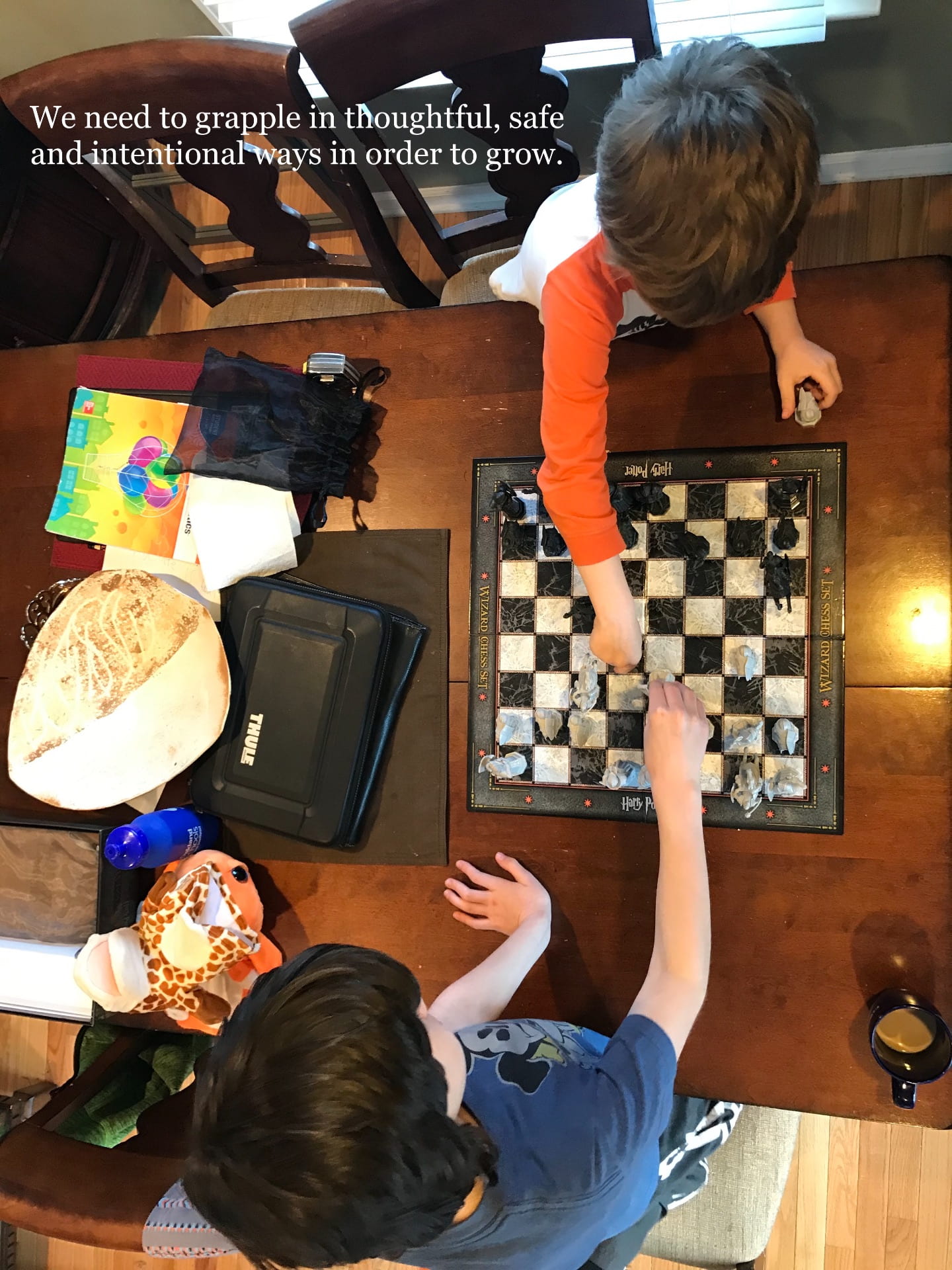Finding the Good Ain’t Bad
Our experiences impact how we feel and how we function.
Positive experiences tend to uplifted and energized us. Negative experiences can produce a range of responses that cause us to feel a range of emotions, from contemplative to drained of energy and upset.
All of our experiences are important. None are without value.
Even feeling pain, sadness and fear can help us learn and grow. Challenging emotions support the building of resilience.
I’ve heard it said that kids learn to grapple when they have things to grapple with. I believe that’s true for all of us, kids and adults. We need to grapple in order to grow. We need to do so in thoughtful, safe and intentional ways.
With focus and strength we can lift and shift the experiences of our days, and we can maximize the value of each. We can do it by compartmentalizing.
When we make note of, and seek to understand our experiences, we can deign an energy flow that promotes positivity, productivity, and health. In this way, we can enhance our ability to process experiences, both positive and negative.
Imagine each experience you have as a dash in a long, broken but cohesive line. A chain of events. Indelibly interwoven, but not connected physically. Imagine each experience as one piece of your day that eventually becomes a completed puzzle.
Some experiences practically process themselves while some are more difficult to process.
If we lift the more difficult dashes, or pieces, above the imaginary line of our daily experiences, and separate them from those that flow easily, we can put them aside for later reflection.
We can’t attend to everything in the moment it happens. There’s simply too much. If we want to remain present we can’t get wrapped up in every challenging emotion that comes our way. When we lift and shift, we can breath, regroup, focus, and go back to experiences with intentionality.
It’s not easy and it takes practice, however, when I’m able to achieve the lift and shift, I find it extremely worthwhile.
For example, when someone treats me in an unkind way, and I’m able to lift that treatment out of my immediate timeline rather than attaching myself to negative emotions, I can stay present with the game of tag I’m playing, the book I’m reading, or the joyful experience of laying on a hammock with my daughter, counting leaves and imagining that clouds are dragons and bunnies.
When I’m ready and have some time, I can re-engage with the challenging experience and it’s connected learning in a more productive way. When I do that, the lessons seem to take hold more deeply, with meaning rather than emotion as the foundation.
Another piece of the experiential puzzle has to do with the narratives we write about our experiences.
Narratives are important, and they come in multiple forms. There are the narratives we write instinctively, the ones that pop into our minds as experiences are unfolding, and then there are the ones we write reflectively, given some time and space.
If someone treats me in an unkind way my instinct might be to consider that person unkind, when actually, they are more likely upset or frustrated.
Most often, the initial narrative from a negative experience is not the one I want to stick with, in large part because it’s typically driven by emotion.
When I lift and shift I still write the instinctive narrative, however, I give myself an opportunity to write multiple other narratives until I find the one that’s best for my learning and growth.
What else might be happening in any give scenario, other than the reactive, emotional possibilities that can enter our minds in moments of frustration?
After writing multiple narratives, we can connect them to the most succinct understanding of reality that we know. We can’t read minds or understand all of the finite nuances of the world in which we live, but we can find the good in most things.
This strategy can help us decrease worry about things that are outside of our control.
Lifting and shifting, in conjunction with extended and thoughtful narrative writing, helps us assume positive intentions, which in my experience most people seem to have.
Refining out ability to process in healthy and thoughtful ways increases well-being and perpetuates positive progress for everyone involved.
In it together for the kids.
Live. Love. Listen. Learn. Lead. Thanks.

Another home run…
Seth, thank you for another thoughtful and inspirational post to start the week. BTW your rap should be submitted to a publisher for a children’s book! It is brilliant!
You’re too kind, Teresa! I appreciate your kind words and I’m so glad you find this stuff meaningful:)! Thanks, my friend…enjoy the day!